Why would you want to quit coffee you ask?
While it’s true that it does bring a lot of health benefits, like those I mentioned in this article, coffee doesn’t agree with everyone.
If you’re particularly sensitive to caffeine, find you’re anxious or not sleeping, are pregnant or are just straight up addicted to the stuff, you might be best eliminating it from your diet.
Wondering exactly what will happen to your body when you quit coffee?
From the symptoms of withdrawal, to the amazing health benefits you can expect, let me break it down for you.
Is Caffeine Addiction Real?
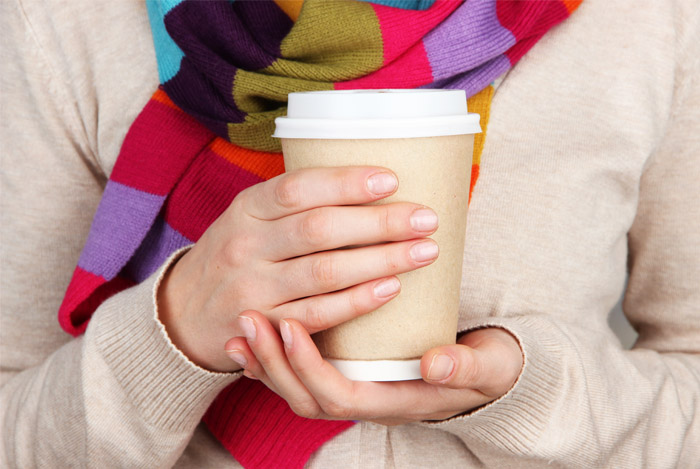 At one time or another we’ve all said things like ‘I can’t function properly without my morning cup of coffee’.
At one time or another we’ve all said things like ‘I can’t function properly without my morning cup of coffee’.
I’m sure most of us haven’t meant it in the literal sense, but some people might!
It turns out that caffeine dependency can be a real disorder, especially if you go by the criteria for substance dependence as outlined in the American Psychiatric Association’s Diagnostic and Statistical Manual of Mental Disorders (DSM).
The criteria takes into consideration things like:
- If the substance is often taken in larger amounts or over a longer period than expected
- A persistent desire or unsuccessful efforts to cut down or control use
- If a great deal of time is spent obtaining, using or recovering from the effects of the substance
- If important social, occupational, or recreational activities are given up or reduced because of the substance
- If use is continued despite a physical or psychological problem which is caused or worsened by the substance
According to a Johns Hopkins study that reviewed over 170 years of caffeine withdrawal research, just one coffee a day can produce caffeine addiction.
Crazy, isn’t it?
Of course, caffeine dependence isn’t on the same level as drug or alcohol dependence but, for some, it causes enough problems to convince them to kick the habit.
If this sounds like you, here’s what you can expect when you quit coffee.
Symptoms of Caffeine Withdrawal
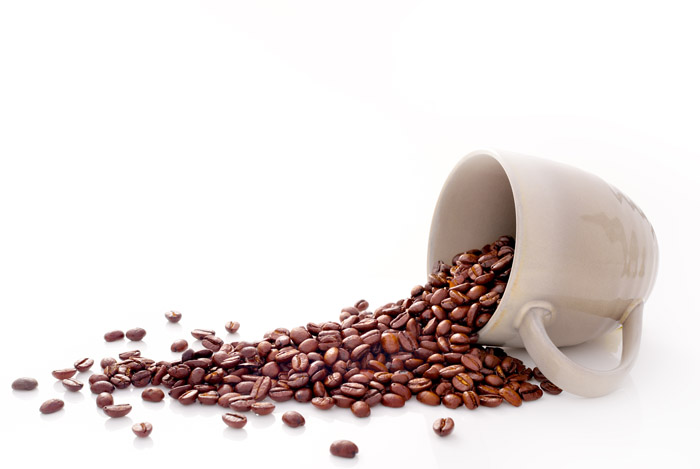 About half of all coffee drinkers will experience symptoms of withdrawal once they quit.
About half of all coffee drinkers will experience symptoms of withdrawal once they quit.
These symptoms will start from 12 to 20 hours after your last caffeine hit, peaking two days later. You can expect them to last about a week.
While it may be unpleasant, it will also be totally worth it!
Don’t worry – later on I’ll give you a few tips to minimize discomfort.
Headache
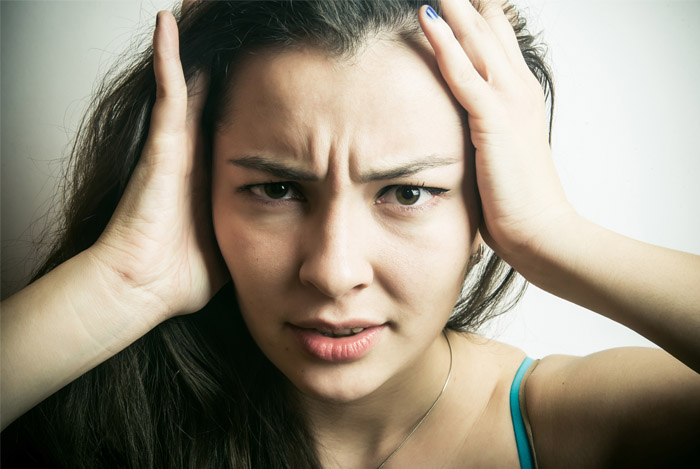 These can range from mild to severe, although not everyone will experience a pounding head.
These can range from mild to severe, although not everyone will experience a pounding head.
Usually, you’ll only experience a caffeine withdrawal headache if you have been drinking 500 mg of caffeine per day.
That’s about five cups of coffee. A lot by most people’s standards.
But even if you’re getting caffeine from sources other than coffee (like tea or soda) they will all count towards that 500 mg intake.
Fatigue & Inability to Concentrate
 Caffeine is a stimulant, so naturally when you remove it from your daily routine, you’re going to lose the energy kick it brings.
Caffeine is a stimulant, so naturally when you remove it from your daily routine, you’re going to lose the energy kick it brings.
According to nurse Marcelle Pick, you’ll also lose the psychological boost to your concentration and mood.
Anxiety, Depression or Irritability
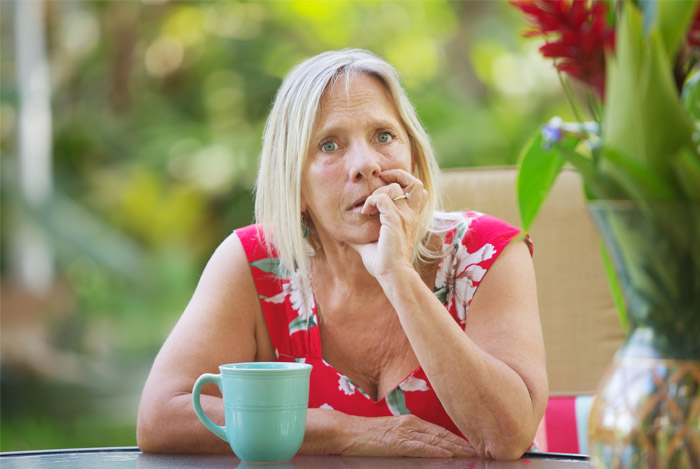 If you’re giving up caffeine because it makes you depressed, anxious or even causes panic attacks, the last thing you’ll want to hear is that caffeine withdrawal can cause anxiety and depression too.
If you’re giving up caffeine because it makes you depressed, anxious or even causes panic attacks, the last thing you’ll want to hear is that caffeine withdrawal can cause anxiety and depression too.
According to the John Hopkins Medicine study I mentioned earlier, 13% of people develop ‘significant impairment’ during caffeine withdrawal.
For some, they were unable to leave the house, work, or function…pretty serious side effects, huh?
Less serious is the irritability you might feel – when everyone and everything gets on your last nerve.
Constipation
 Caffeine tends to stimulate bowel activity so when you give up, you might feel a little (or a lot) backed up.
Caffeine tends to stimulate bowel activity so when you give up, you might feel a little (or a lot) backed up.
If this happens, you can get things moving again by eating plenty of fiber in the form of whole grains, vegetables and beans, drinking lots of water and exercising regularly.
Other Symptoms
 Some people also report feeling flu-like symptoms including a stuffy nose, blocked sinuses, muscle pains and even vomiting.
Some people also report feeling flu-like symptoms including a stuffy nose, blocked sinuses, muscle pains and even vomiting.
For some, caffeine withdrawal can also cause insomnia.
How to Ease the Symptoms of Withdrawal

Here are some easy tips to help you quit your habit.
- Most experts advise quitting caffeine gradually. Cut down from 3 cups a day, to 2 and then one.
- Substitute your coffee for green tea, which still contains caffeine, but much less than coffee.
- Cut out sodas, which are a source of caffeine, but are also filled with sugar and other nasty additives.
- Beat the slump caused by ridding your diet of caffeine by eating healthy meals, which will provide you with a steady stream of energy throughout the day. Aim for a balance of good fats, complex carbs and protein.
- Drink enough water to stay hydrated and avoid the headaches and constipation that are symptoms of withdrawal.
- Lemon water is a good replacement for a morning cup of coffee and can help you detox
Health Benefits after Withdrawal
The pain of quitting coffee will all be worth it once you begin to experience some of these incredible health benefits.
Your Hormones may Begin to Regulate
 Cutting out caffeine is just one of the many dietary changes recommended for balancing hormones.
Cutting out caffeine is just one of the many dietary changes recommended for balancing hormones.
Hormonal imbalance affects a huge number of people today, thanks to poor diet, environmental pollution and stress.
Hormones that are out of whack have a big impact on overall health, so you should notice some positive changes when you give up coffee.
For example, the caffeine in coffee increases the stress hormones, including cortisol. In fact, after drinking coffee, your body’s levels of cortisol are similar to the levels experienced during times of high stress.
High cortisol levels have been linked to mental problems like memory loss, along with with insulin resistance, which can eventually lead to diabetes.
Coffee may also affect the HGH hormone, which helps maintain muscle and bone mass in adults.
You’ll Sleep Better
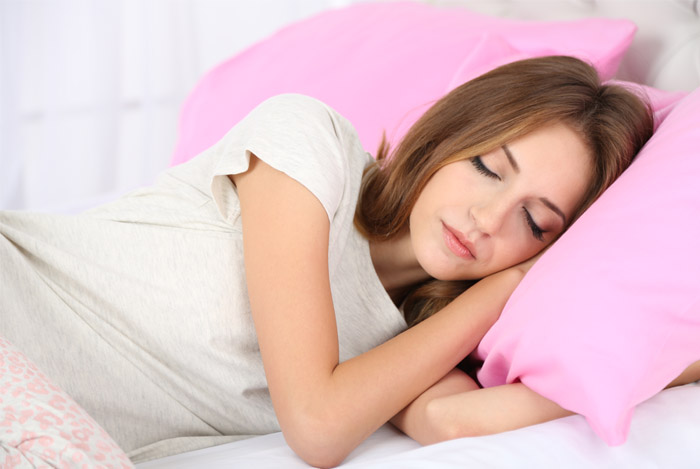 Even a single cup of coffee can disrupt your nightly shut-eye so don’t be surprised if you suddenly start sleeping like a baby.
Even a single cup of coffee can disrupt your nightly shut-eye so don’t be surprised if you suddenly start sleeping like a baby.
Isn’t it ironic that cutting out coffee may totally eliminate the need for an afternoon pick-me-up?
A review of studies found that regular daily caffeine intake is associated with disturbed sleep and daytime tiredness. The researchers also claim that the effect of regular caffeine intake on sleep and alertness is greatly underestimated.
And a 2012 study on the impact of caffeine consumption at different times of day, found that caffeine consumed up to six hours before bed may have disruptive effects on sleep.
You May Become Less Anxious
 Researchers are becoming increasingly concerned about caffeine’s role in panic attacks and other anxiety disorders, which have become the most common mental illnesses in the US.
Researchers are becoming increasingly concerned about caffeine’s role in panic attacks and other anxiety disorders, which have become the most common mental illnesses in the US.
If you’ve had too much coffee – which most of us have done at some point or other – then you’ll be familiar with the jittery sensation you get.
But for those who are predisposed to anxiety disorders, too much caffeine can trigger a variety of unpleasant sensations like sweaty palms, a thumping heart and ringing in the ears. This can lead to a full-blown panic attack.
What’s worrying is that many of these people don’t actually realize it’s the coffee causing the anxiety – and attribute it to what they were doing at the time, like taking part in a meeting, or driving the freeway.
Take note of your mood in the days and weeks after quitting. You may notice you’re much happier and calmer and it could be down to simply eliminating coffee.
You Can Say Goodbye to Headaches
 If you suffer regular headaches, and your doctor hasn’t found any cause, have you considered the possibility that it’s related to coffee?
If you suffer regular headaches, and your doctor hasn’t found any cause, have you considered the possibility that it’s related to coffee?
Specifically, caffeine withdrawal?
If your body is expecting its usual 11 am caffeine hit, but you’re tied up on a call and can’t make it to the Nespresso machine, then it’s going to cause withdrawal symptoms such as a pounding head.
Dr Stacey Sigmon from the University of Vermont explains why you feel so bad – the absence of caffeine significantly changes the flow of blood and even the electrical activity in your brain.
However, you need to have been drinking two or three cups of coffee a day to suffer this type of a headache when you miss your dose.
You’ll Slim Down
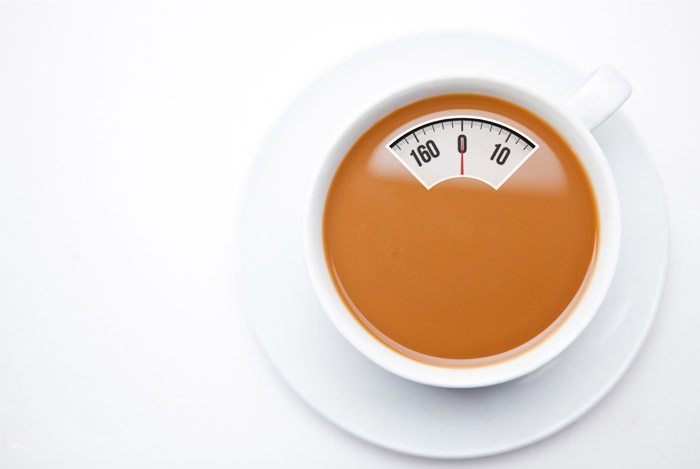 You might have heard that caffeine may slightly boost weight loss or prevent weight gain, so how can quitting coffee do the same thing?
You might have heard that caffeine may slightly boost weight loss or prevent weight gain, so how can quitting coffee do the same thing?
Well, kicking the coffee habit may not cause you to drop pounds if you only ever drank your coffee black.
But, if you indulged daily in a Starbucks Grande Caffè Mocha with whole milk and whipped cream then you’re looking at 400 calories per drink!
Even a Grande Caffè Latte with 2% milk will set you back 190 calories a drink. That equates to 1,330 calories every week, plus an additional 140 calories if you add in one sugar packet a day.
With those stats, when you quit this habit weight loss is almost guaranteed.
Your Heartburn will Stop
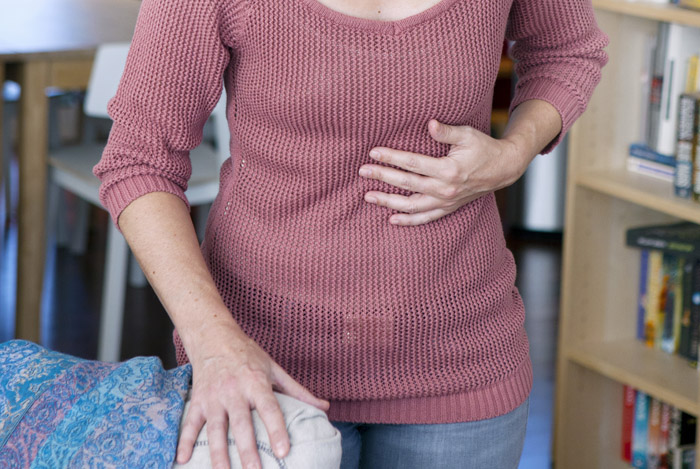 According to the National Digestive Diseases Information Clearinghouse, around 20% of Americans suffer acid reflux at least once a week.
According to the National Digestive Diseases Information Clearinghouse, around 20% of Americans suffer acid reflux at least once a week.
And 7% of Americans experience daily episodes of heartburn – that burning feeling in your chest and sour taste in your throat.
If you’re one of those Americans, then cutting out coffee might solve your problem – coffee is one of the top ten heartburn triggers, according to WebMD.
It has been shown in studies to increases gastro-oesophageal reflux. Even decaf causes the same increase, leading researchers to believe that it’s another component in coffee, besides caffeine, that causes the problems.
It might be because coffee is acidic and increases levels of stomach acid – both decaffeinated coffee and regular coffee increase stomach acidity more than caffeine alone.
Whatever the reason, coffee is linked with heartburn so cut it out and see if you feel better. Check out my other tips to deal with heartburn and indigestion too.
You’ll Have Pearly White Teeth Again
 As coffee is acidic, over time it may wear out tooth enamel. Long term, it means your teeth won’t look so good and may even start to decay.
As coffee is acidic, over time it may wear out tooth enamel. Long term, it means your teeth won’t look so good and may even start to decay.
And the tannins in the coffee build up on the enamel, giving you a less than charming yellow smile.
According to a study that compared tobacco and coffee-stained teeth, those stained with coffee were more resistant to tooth-brushing and more likely to become discolored again following a bleach treatment.
If your coffee stained teeth last long after your cravings, you could always try oil pulling.
It promotes oral hygiene and, even though there’s no scientific evidence to say it whitens teeth, fans of the practice claim it does.
You Can Take Control of Your Emotions
 According to Travis Bradberry, Forbes contributor and Emotional Intelligence expert, caffeine actually kills our emotional intelligence (EI).
According to Travis Bradberry, Forbes contributor and Emotional Intelligence expert, caffeine actually kills our emotional intelligence (EI).
EI is the ability to identify and manage our own emotions and the emotions of others.
When you think about it, it really makes sense that caffeine can impact our EI.
It’s true that studies have shown caffeine improves cognitive abilities like memory and attention span, although researchers believe this is due to a short-term reversal of caffeine withdrawal.
But caffeine can also cause an adrenalin surge that deprives your brain of oxygen, says Bradberry, something our brains need to stay calm and rational.
It also affects sleep, which is vital for self-control, attention and memory.
Don’t be Mr. Angry in the office – stay rational and in control by swapping your coffee for a soothing chamomile tea instead.
So there you have it – what happens your body when you quit coffee, from withdrawal symptoms to long-term health effects.
Once your body gets used to being caffeine free, I’m betting you’ll wish you quit coffee years ago.
Have you ever braved the symptoms of caffeine withdrawal? How did it go for you?
The post This is What Happens to Your Body When You Quit Coffee appeared first on Nutrition Secrets.
http://www.nutritionsecrets.com/what-happens-when-you-quit-coffee/
No comments:
Post a Comment